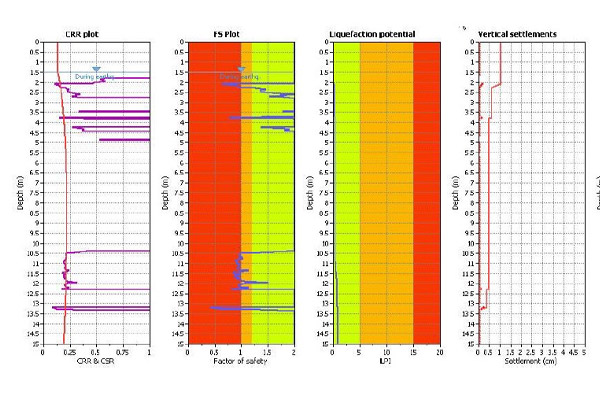The second step is to assess the level of seismic hazard in the area, including the magnitude and frequency of earthquakes that can occur.

The final step is to design and recommend effective mitigation measures to reduce the risks and effects of liquefaction. This may include soil improvement techniques, such as compaction, vibro-compaction, or installing a soil reinforcement system.
The purpose of liquefaction analysis is to ensure the safety and stability of structures and infrastructures in areas prone to seismic activity. By assessing the potential risks and effects of liquefaction, engineers can design effective mitigation measures to minimise the risk of damage or failure. Liquefaction analysis is a critical component of geotechnical engineering, particularly in earthquake-prone regions, where it can help prevent loss of life and property damage.
Soil Eng provides comprehensive and efficient services across the full breadth of geotechnical engineering, including investigation, analysis, design, and reporting.
We value our client relationships and work diligently to achieve the best outcomes for projects and properties.
Our feedback speaks for itself: